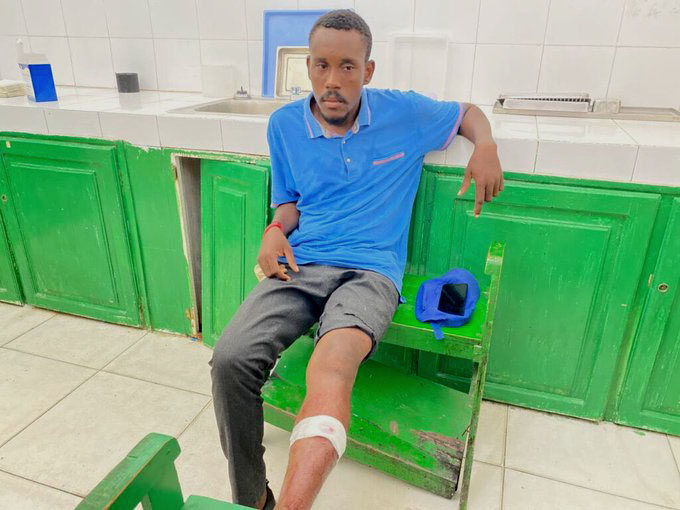Miami, February 9, 2024—Haitian authorities should investigate the recent injuries of at least five journalists who were covering anti-government protests and ensure that the media can cover matters of public interest without fear of injury, the Committee to Protect Journalists said on Friday.
On Thursday, freelance journalist Jean Marc Jean was struck in the face by a tear gas canister fired by an officer with the national police’s anti-riot squad in the capital, Port-au-Prince, according to media reports, as violent protests demanding the resignation of Prime Minister Ariel Henry rocked Haiti during the week.
On Wednesday, at least three reporters—Wilborde Ymozan, Lemy Brutus, and Stanley Belford—were injured when police used tear gas to disperse about 1,000 anti-government demonstrators in the southwestern coastal city of Jérémie, according to local media reports.
Tensions had been rising in Haiti ahead of February 7, the day that new presidents are traditionally sworn in. Elections that Henry promised would take place in 2023 were not held. Haiti has not had a president since Jovenel Moïse was assassinated in 2021.
Between January 20 and February 7, at least 16 people were killed and 29 injured, mainly during confrontations between protesters and police, the United Nations Office of the High Commissioner for Human Rights said in a statement on Friday.
On January 29, Charlemagne Exavier, a reporter with Radio Tele Lambi, was shot in the left leg by an unknown assailant while covering an anti-government protest in Jérémie, local media reported and the radio station’s owner, Michel Clérié, told CPJ.
CPJ has received reports from local media organizations — the Association of Haitian Journalists and the Online Media Collective — of as many as 11 journalists injured in protests across the country but has not been able to independently confirm the other six cases.
“We are very concerned about the wave of violent protests sweeping across Haiti and the impact they will have on journalists attempting to cover unfolding events,” said Katherine Jacobsen, CPJ’s U.S., Canada, and Caribbean program coordinator. “It is incumbent upon Haitian authorities to ensure that the media can safely report on such matters of public interest.”
In Port-au-Prince, Jean was taken to a local hospital on Thursday evening, according to Pierre Lamartinière, a video journalist who visited him.
“He was struck in the face and has a deep wound next to his nose. I am not a doctor, but I fear that he may have lost an eye,” Lamartinière told CPJ.
In Jérémie, Ymozan, who works for the online video outlet Tande Koze was hit in the leg by a projectile; Brutus, manager of local online video outlet Grandans Bèl Depatman, received stitches in his head after he was beaten and had his equipment stolen; and Belford, a reporter with Florida-based Island TV, sustained a hand injury, according to two local radio station owners, whose outlets covered the protests, and who spoke to CPJ on condition of anonymity, citing fear of reprisal.
The three journalists were treated in local hospitals for minor injuries, the news reports stated.
A photograph posted on X, formerly Twitter, by a local radio station on January 29 showed Exavier sitting in a hospital with a bandage on his leg. He was discharged later that day, Clérié told CPJ.
Haiti’s Inspector General of Police, Fritz Saint Fort, told CPJ that his office was looking into the five incidents but could not comment at this stage.
In a statement, Haiti’s national ombudsman, Renan Hédouville, who heads the Office for the Protection of the Citizen, called the incidents “a serious attack on press freedom.”
At least six Haitian journalists have been murdered in direct reprisal for their work since Moise’s assassination. Haiti was ranked as the world’s third-worst nation in CPJ’s 2023 Global Impunity Index, which measures where killers of journalists are most likely to go unpunished.
